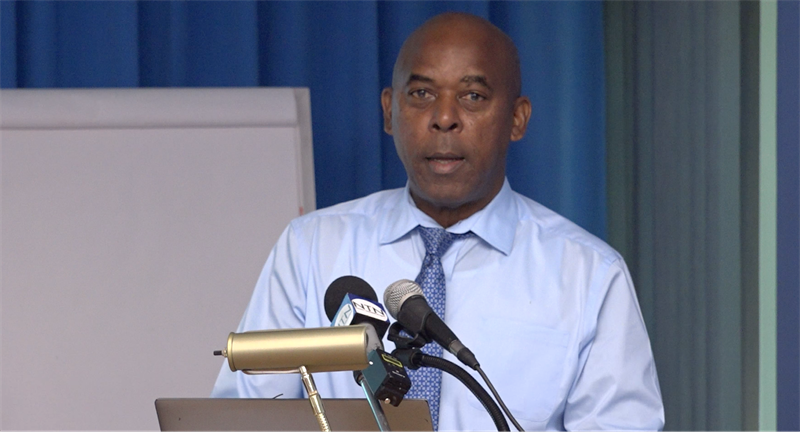SLASPA Maritime Division Conducts Meeting on Greenhouse Gas Emission Reduction
The Maritime Division of the Saint Lucia Air and Sea Ports Authority (SLASPA) recently convened a focus group to gather stakeholder input on proposed greenhouse gas reduction strategies within the maritime sector. This discussion is crucial preparation for upcoming negotiations with the International Maritime Organization (IMO), the UN agency responsible for regulating shipping. The IMO’s objective is to significantly reduce the industry’s environmental footprint, a complex undertaking given the vital role of shipping in global trade. The focus group aimed to understand the potential impacts of proposed measures, particularly on Small Island Developing States (SIDS) like Saint Lucia, which are heavily reliant on maritime transport for their economic survival.
The IMO’s overarching strategy for decarbonizing the shipping industry involves ambitious targets: a 20% reduction in greenhouse gas emissions by 2030, a 70% reduction by 2040, and achieving net-zero emissions by 2050. Achieving these goals requires a multifaceted approach, including technological innovation, operational efficiencies, and potentially, economic instruments like a universal levy on greenhouse gas emissions from shipping. This levy, a central point of discussion in the Saint Lucia focus group, is envisioned as a mechanism to fund the transition to greener maritime practices by supporting research and development, incentivizing the adoption of cleaner technologies, and facilitating capacity building in developing countries. The discussions sought to gauge stakeholder perspectives on the feasibility and potential implications of such a levy, particularly its impact on the economies of island nations.
Saint Lucia, as a small island nation heavily dependent on maritime transport, faces unique challenges and opportunities in the context of maritime decarbonization. The focus group served as a platform for local stakeholders, including government representatives, industry players, and civil society organizations, to voice their concerns and contribute to the development of a national position that safeguards the island’s economic interests while aligning with global environmental goals. The feedback gathered will inform Saint Lucia’s stance in the IMO negotiations, ensuring that the specific vulnerabilities and needs of SIDS are adequately considered in the development of international regulations.
Christopher Alexander, Director of Maritime Affairs, emphasized the importance of stakeholder engagement in shaping Saint Lucia’s approach to the IMO negotiations. He highlighted the growing international support for a universal greenhouse gas levy, noting that a significant number of both developed and developing countries have expressed their backing for this mechanism. He underscored the Caribbean’s historical influence within the IMO, particularly in securing majority votes on key issues, and stressed the importance of maintaining this influence to ensure that any global framework for greenhouse gas pricing considers the unique economic realities of the region. Alexander also emphasized the need for a global fuel standard to further drive the adoption of cleaner fuels and technologies in the shipping industry.
The outcomes of the focus group will also play a critical role in informing amendments to Saint Lucia’s Marine Protection Bill, demonstrating the government’s commitment to aligning national legislation with international best practices and environmental commitments. By engaging stakeholders in this crucial dialogue, Saint Lucia is proactively shaping its future in the maritime sector, balancing the imperative of environmental sustainability with the need to protect its economic well-being. The focus group represents a critical step in Saint Lucia’s journey towards a greener maritime future, underscoring the nation’s commitment to responsible environmental stewardship.
The participation of Saint Lucia in these discussions and its commitment to engaging local stakeholders highlight the growing recognition of the interconnectedness of global environmental challenges and the importance of international cooperation. The IMO negotiations represent a critical opportunity to chart a course towards a sustainable future for the maritime industry, one that balances the need for efficient global trade with the imperative of protecting the planet. For small island nations like Saint Lucia, the stakes are particularly high, and the outcomes of these negotiations will have far-reaching implications for their economic development and environmental resilience.
Share this content:












Post Comment